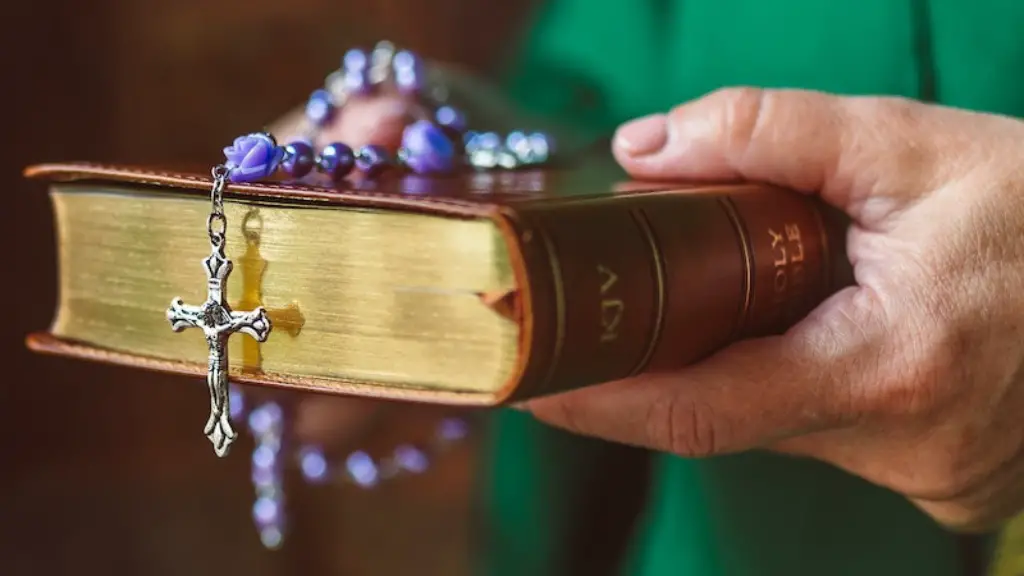What Does The Bible Say About Woman?
The Bible is a sacred book of great authority to millions of people across the globe. It is held by many believers as the ultimate source of wisdom and instruction – including advice on how people should conduct themselves as moral and ethical agents. As regards women in particular, what does the Bible say?
It is necessary to note that of the people who wrote the Bible – including the authors of the books themselves, the scribes and scholars who recorded the scriptures, and the individuals who compiled the various documents – many of them were men. While there is no single set of authors or editors, all these figures shared a common background, one that included a patriarchal society and related values. Thus, one has to take into account the fact that the writers and compilers of the Bible were not always sympathetic to the idea of women as equal agents in the eyes of God.
Despite this inherent bias, the Bible is filled with many examples of woman who play a significant role in the religious history and symbolic canon. For instance, Eve is widely regarded as the first woman in the Bible and even the earliest version of the Bible speaks of her being created from Adam’s rib. Similarly, Sarah is seen as the mother of the Jewish people, while Esther is celebrated for her courage and strength in saving her people. There are also prominent women in the New Testament as well, including Mary, the mother of Jesus, and Martha and Mary Magdalene who were said to have been followers of Jesus.
The Bible is also filled with explicit instructions on how women should view themselves and behave in relation to men. In the Old Testament, Proverbs 31:30 states that ‘Charm is deceitful and beauty is passing, But a woman who fears the Lord, she shall be praised.’ In other words, physical beauty is fleeting and should not be relied upon for lasting peace, as only honoring and obeying God will bring true happiness. Similarly, in the New Testament, 1 Corinthians 11:3 states that ‘But I want you to understand that Christ is the head of every man, and the man is the head of a woman, and God is the head of Christ.’ This is meant to convey the idea that men and women should have an equitable relationship and each should recognize the worth and significance of the other.
These teachings, of course, have not always been taken seriously by believers, nor have they been applied in a consistent manner across the ages. Women remain held to traditional gender roles in many cultures today and are still frequently asked to subordinate their own needs and desires to those of their male counterparts. Yet, despite this continued inequality, it is still possible to look at the Bible and read in its passages the early aspirations for a more equal relationship between men and women.
Attitudes Towards Women In The Bible
Despite its acknowledged patriarchal bias, the Bible features many positive portraits of women and holds them in high esteem. Throughout the Old Testament and New Testament, women are lauded for their wisdom, courage, and faithfulness. For instance, Proverbs 31 speaks of a woman of noble character who is an example of strength and discipline, while the book of Ruth celebrates a widowed woman who is praised for her loyalty and kindness. In the New Testament, Mary and Martha are respected as friends of Jesus and their commitment to Him is emphasized in various passages.
However, despite these feminine roles of honor and respect, it is also true that women in the Bible were not given the same rights and freedoms as men. Paul’s teachings on the role of women in the Church, for instance, were much more restrictive than those of Jesus, who was said to have included both women and men in His ministry. Women were excluded from the priesthood in both the Old and New Testament and this remained unchanged for much of the Church’s history. Likewise, women were not allowed to teach and write in the early Church, and this exclusion remained in place even during the Protestant Reformation. As such, attitudes towards women and the roles they were permitted to have remained relatively conservative throughout the Bible and subsequent generations.
Conclusion
In conclusion, while the Bible contains positive messages regarding women, the overall picture is one of inequality, with women in many cases subjected to oppressive traditional gender roles. Despite this, however, there are also numerous examples of woman who are praised and honored for their strength, wisdom, and faithfulness. It is in the stories of these figures that the Bible’s true respect for women lies, and it is up to modern-day believers to ensure that these examples are taken seriously, and that the deeper inequality that often lurks underneath is addressed and challenged.
Role of Women in the Bible Today
The role of women in the Bible has undergone a number of changes over time, and today many churches encourage and promote the inclusion of women in ministry and the encouragement of women to pursue leadership roles. This reflects a growing acceptance of the presence of women in the pulpit and in other roles of spiritual authority. In addition, many denominations are beginning to recognize contributions made by women in the past and present, through recognition of their historical achievements, literature, and teachings.
In spite of the greater inclusion of women in the life of the Church, some denominations continue to adhere to a more traditional view of gender roles, and there is still a degree of inequality between men and women within these communities. Nonetheless, the inclusion of women in the Bible today is slowly but surely becoming increasingly accepted and prominent, and this is a trend which is only likely to continue in the coming years. All believers should strive to ensure that their interaction with the Bible reflects this and that the voices of women are not only heard but also empowered.
Importance of Education
In order to understand the Bible, it is important to engage in biblical studies and education. This is true, not only in terms of being able to read and interpret the Scripture, but also in order to assess the perspectives of different traditions, authors, and commentators. Through education, it is possible to explore the many different aspects of the Bible, including those related to attitudes towards women and the inclusion of women in the Church. This can help believers to develop a deeper knowledge and appreciation of the Bible and its teachings, and of the ways in which modern-day society can be guided by these teachings.
In addition, education is key to understanding the historical context in which the Bible was written and the original meaning of its words and messages. This is essential for those who are looking to uncover a deeper insight into the role of women in the Bible and in other aspects of life and faith. Through education, believers can gain a broader perspective and gain the understanding that is necessary to fully comprehend the Bible and the teachings of Jesus.
Women’s Rights Issues
One of the key issues related to women and the Bible is that of women’s rights and equality. As mentioned, the Bible was written in a patriarchal time and it reflects the views of its authors. While many of these views have been modified in the present day, some of them continue to exist and act as a barrier to true equality for women. It is therefore essential to recognize the biases within the Bible and to seek ways to overcome them.
In addition, when looking at the issue of women’s rights and equality, it is important to not only consider the legal issues involved but also the social and cultural implications. For instance, in many cultures around the world, women are still not given the same rights and liberties as men, and this can have a wide-reaching impact on their lives. It is therefore crucial to look at the Bible in a way that takes into account these issues, and to seek to interpret it in a way that acknowledges the equality and rights of women.
The Relevance to Today’s Society
As with any ancient text, the Bible is very relevant to today’s society. It is filled with timeless wisdom, profound insights, and powerful teachings which are applicable to life in the present day. With regards to women, the Bible remains an important source of guidance on how to live in an equitable and fulfilling way. Through a careful reading and interpretation of the Bible, it is possible to find the necessary clues for a better understanding of both scripture and modern-day society.
In conclusion, the Bible is a powerful source of wisdom and insight for both believers and non-believers alike. What does it say about woman? On the surface, the Bible is unquestionably patriarchal in its perspectives and teachings, and women are often given a more limited role in scripture. However, when looked at more closely, it is easy to find examples which show a much more positive attitude towards women, particularly those which emphasize their wisdom, courage, faithfulness, and strength. As such, the Bible remains an important source of guidance and moral instruction in the modern day, and all believers should strive to understand and interpret its messages in a way that supports and promotes gender equality.



